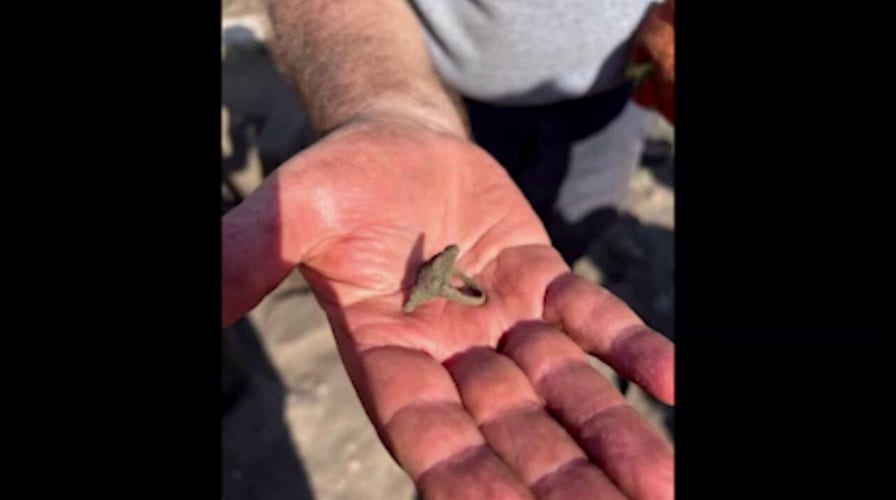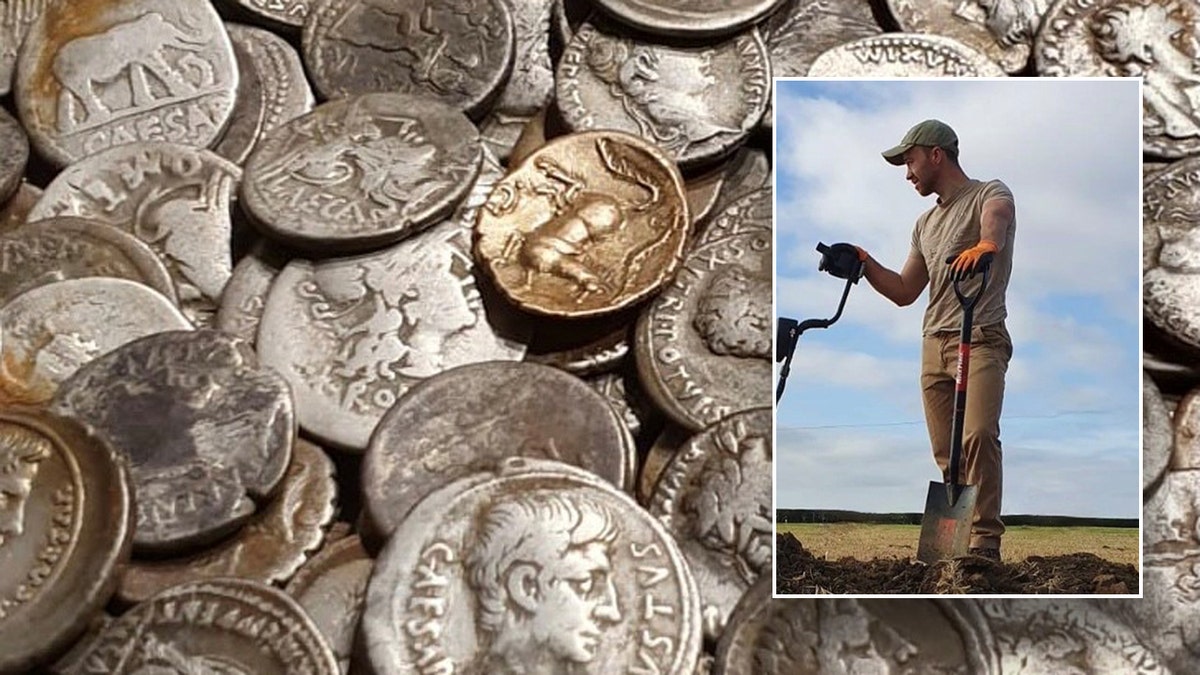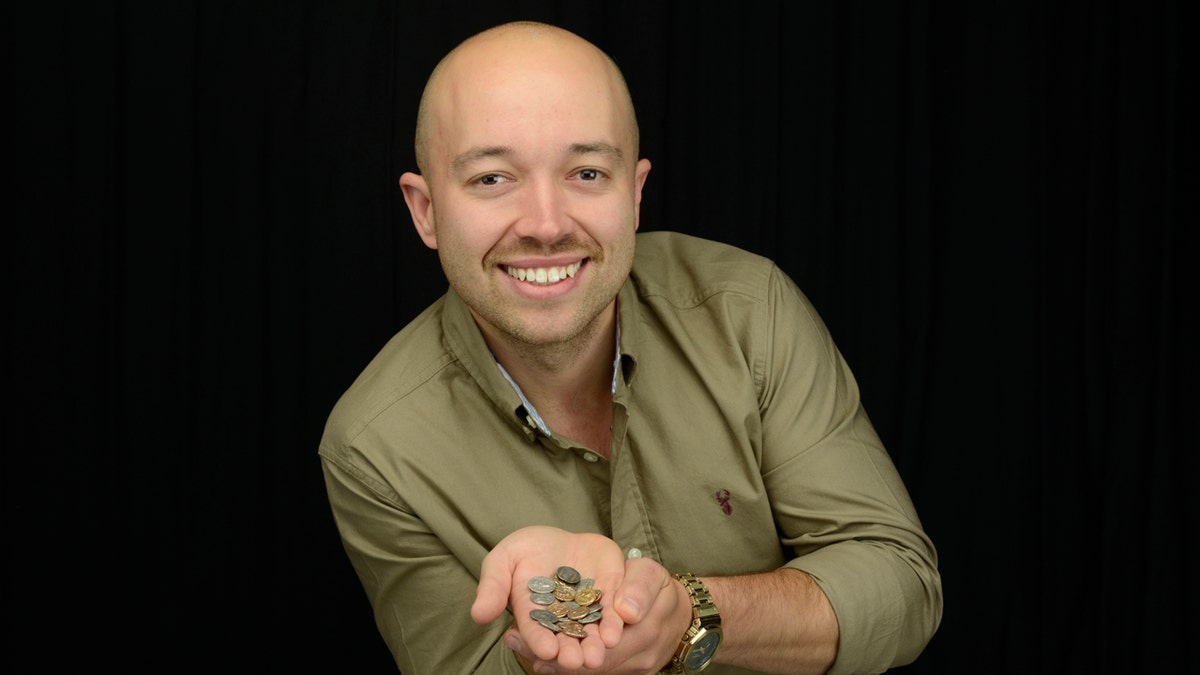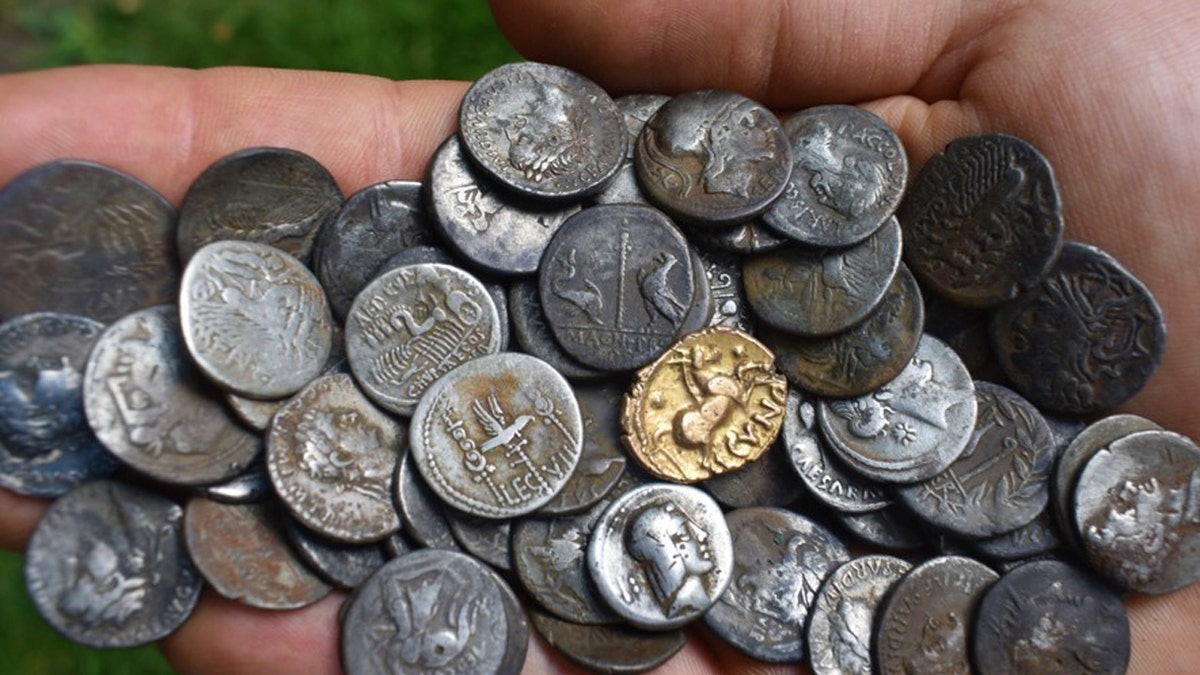close 
Archaeologists discover ring that’s over 1,000 years old
Archaeologists from the University of Aberdeen recently found a 1,000-year-old ring during a volunteer dig near Burghead, Scotland. The university believes the Pictish ring means the "painted ones."
Discovering ancient treasure resulted in a major payday for the lucky finder.
A 34-year-old archaeologist named George Ridgway found a collection of more than 680 gold and silver coins with his metal detector in September 2019, according to a press release from Noonans Mayfair, the London-based auction house responsible for the sale of the coins.
The coins were discovered with a metal detector in the grounds of Helmingham Hall near Stowmarket in Suffolk.

Hundreds of ancient Roman coins were unearthed in 2019. The finder recently had a big payday with the coins selling at an auction. (George Ridgway)
ARCHAEOLOGISTS DISCOVER UNIQUE ARTWORK IN ENGLAND DATING BACK TO THE EARLY 2ND CENTURY
“It was on September 8th, 2019, that I decided to investigate an unusual crop mark in a recently harvested barley field in Suffolk with my Garrett AT Pro metal detector. I knew that a Roman road ran close to the field and was hoping the two might be related, but after scouring the area nothing turned up,” Ridgway said prior to the sale, per the press release.
No immediate luck didn’t turn away Ridgway. He moved just 30 yards from where he was, where he uncovered two Roman brooches that dated back to the mid first century A.D. His detector went off again, and he found a silver coin issued by Julius Caesar from 46 B.C., according to the press release.
“I couldn’t believe that over the next 3 hours of searching, I found 160 more Roman silver coins, with a few of the coins stuck to pottery fragments. I knew I had made an important archaeological discovery and called my dad to guard the site overnight while we waited for an archaeological team to arrive and excavate the site. It took three months to recover the hoard,” Ridgway went on to say.

George Ridgway found the coins in September 2019, and they recently sold for thousands at an auction. (Noonans)
12-YEAR-OLD BOY STUMBLES UPON STUNNING ANCIENT FIND WHILE WALKING DOG IN ENGLAND: ‘RELATIVELY RARE’
Through further excavation, “Iron Age gold coins of Cunobelin, the king of the Catuvellauni and Trinovantes tribes started appearing,” Ridgway said, per the press release. The collection of coins dates back as early as 206 B.C. up to the emperor Claudius in 46-47 A.D.
The find was a remarkable one for Ridgway, who said in the press release that he was inspired at a young age to “start history hunting” by Indiana Jones. Ever since he was gifted a metal detector by his grandmother when he was 12, finding a Roman hoard has always been on his mind. When he finally detected Roman gold and silver coins, he called the moment “awe-inspiring.”
“We are very pleased with the result of todays (sic) sale. This is one of the largest hoards containing both Iron Age coins and Roman coins found in Britain, with the latest coins of Claudius and those of Cunobelin in virtually as struck condition,” said Alice Cullen, coin specialist at Noonans, per the press release.

The money from the auction is being split between the landowner and the person who found the ancient coins. (George Ridgway)
ARCHAEOLOGISTS FIND SEVERAL ROCK CARVINGS OF ANCIENT BOARD GAME DATING BACK 4,000 YEARS
Sixty-three of the coins collected went to the British Museum and the Colchester & Ipswich Museum for their own collections.
The coins up for auction were estimated to bring in £75,000 (about $100,000), but they ended up selling for even more.
The total amount brought in during the Sept. 18 auction of the coins was £132,865 (about $177,000), Noonans announced in the press release.
CLICK HERE TO GET THE FOX NEWS APP
The money earned at the auction is being split between the landowner and Ridgway, according to Noonans.
When asked what he was going to do with the money, Ridgway told Noonans, “I would like to buy my dad a pint!”
Ashlyn Messier is a writer for Fox News Digital.
